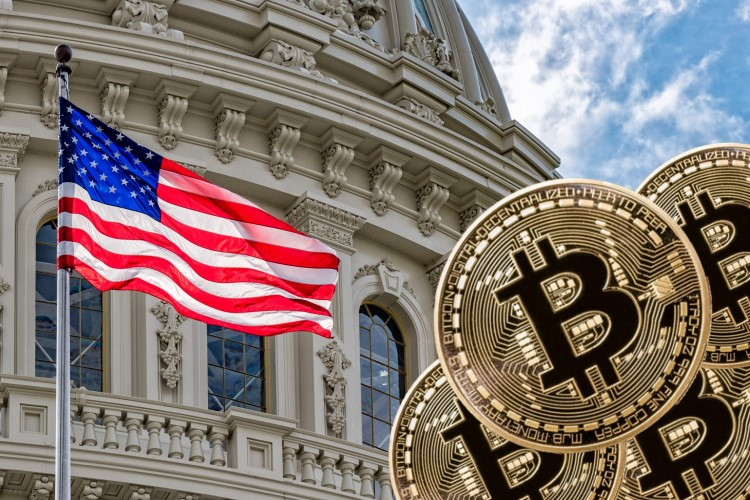Bitcoin declined early on Thursday and hovered near $20,043 at the moment of writing.

According to CoinMarketCap, Bitcoin traded in a $19,793-20,445 range on Wednesday.
Over the past 24 hours, BTC lost 1.57% and closed at $19,950.
The leading cryptocurrency retreated following a lengthy drop of key US stock indexes, as well the latest US inflation data. According to the report by the US Labor Department, inflation in the US declined to 8.3% in August from 8.5% in July, falling short of an expected decrease to 8.1%.
Furthermore, BTC came under pressure from falling US stock indexes. On Tuesday, the Dow Jones Industrial Average dropped by almost 4% in its biggest one-day decline in 2 years. The S&P 500 decreased by 4.32%, and the NASDAQ Composite slid down by 5.16%
Since the beginning of 2022, analysts have increasingly noted the high level of correlation between US equities and digital assets as market players await the consequences of the conflict in Eastern Europe and the Federal Reserve's further policy moves.
According to analysts at Arcane Research, Bitcoin's correlation to tech stocks has reached the highest level since July 2020.
Originally, the cryptocurrency was presented as a hedge against inflation and price fluctuations in regular financial markets, which makes Bitcoin's current situation rather ironic. The increased correlation between digital assets and the stock market has put the cryptocurrency's success into doubt.
Altcoin market
Ethereum, Bitcoin's main competitor in the crypto market, also declined at the beginning of the week. At the moment of writing, ETH was trading at $1,615. Over the past 24 hours, Ethereum lost 1.32%
Last week's worst performing cryptocurrency out of the top 10 digital assets was BNB, which declined by 1.43%.
According to CoinGecko, out of the top 100 cryptocurrencies by market cap, the best performing asset over the past 24 hours was Celsius (+30.77%), while Terra was the worst performing asset (-32.12%).
Over the past week, the best performing cryptocurrency out of the top 100 was Ravencoin (+68.19%), with the worst performing cryptocurrency being Terra Classic (-73.23%).
The total cryptocurrency market cap increased by 1.5%. At the moment of writing, it hovered near $1.1 trillion.
The market cap has declined almost three-fold from November 2021, when it stood at more than $3 trillion.
Outlooks by crypto experts
Raoul Pal, former executive at Goldman Sachs, stated that digital assets could rise steadily in the next 12-18 months.
"If we look out 12 months, the recession is behind us, rates are lower and inflation is low. So that is a very good outcome for risk assets and crypto," he said.
Macroeconomist and technical investor Tascha Che noted that September could be a difficult time for the crypto market due to the recent US CPI report. The crypto market slid down by 5.8% following the release of US inflation data for August.
On September 21, the Federal Reserve will begin its monetary policy meeting. The Fed is expected to increase the interest rate, and inflation rate would be a key indicator for the regulator. The slight decline of CPI is unlikely to deter the Fed from hiking the interest rate by 75 basis points, analysts say. Last week, Fed chairman Jerome Powell said the US central bank was ready to act decisively against record high consumer prices.
Traders are pricing in a 90% chance of a 75 bps increase next week, with a 50 bps move now considered to be unlikely.
According to analysts at Kaiko, Bitcoin's volatility is notably tied to the results of FOMC meetings.
The high correlation between Bitcoin and the Fed's monetary policy has first been observed in the summer of 2021, which indicates that the crypto market has long been influenced by key macroeconomic indicators.
For example, BTC surged above $40,000 in May 2022, when the Federal Reserve increased its interest rate to a target range of 0.75-1%. On the same day, Bitcoin dropped below $36,000 and entered a lengthy period of downward correction.
In June, Bitcoin immediately surged after the Fed raised the interest rate to a target range of 1.5-1.75%.
In the upcoming few months, policy moves by the world's central banks would have a stronger impact on the digital assets market, as interest rate hikes would significantly limit the ability of market players to invest into risky assets such as cryptocurrencies.
"Institutional money has more access to leverage and is more sensitive to interest rate/funding cost changes, leading to larger reactions of crypto prices to macro environment change," Tascha said.
Earlier, famous writer and investor Robert Kiyosaki stated that digital assets would be the investment of choice. Kiyosaki believes that a massive stock market crash is coming that would lead to a global economic crisis.
US economist Eugene Fama has said that BTC's high volatility prevents its widespread adoption as a payment method by other countries.





















